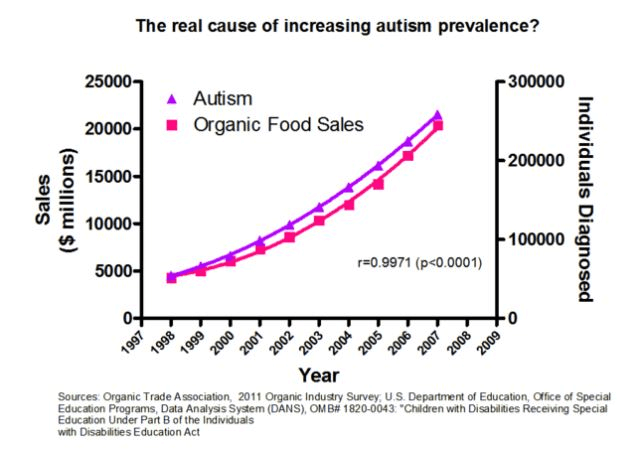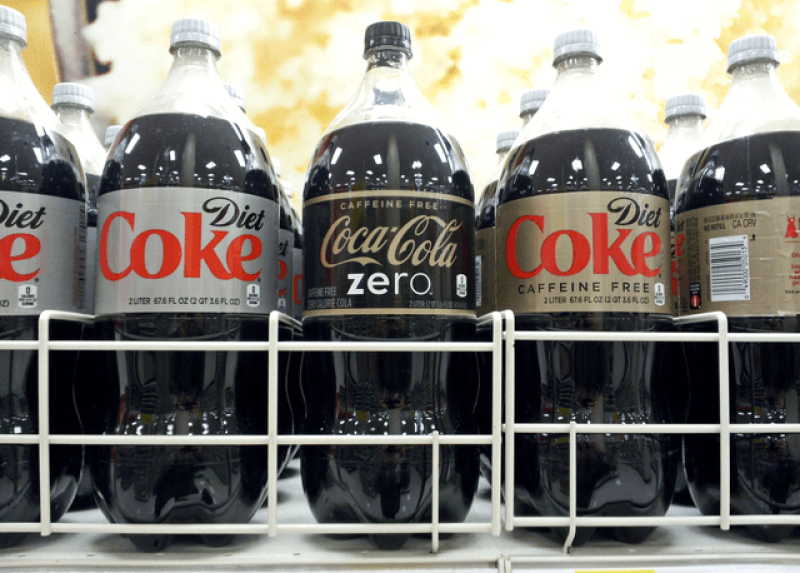If it becomes a popular article, a bunch of other epidemiologists will rush to “replicate” it. Low sodium diets, low fat diets, quinoa, resveratrol, trans fats, they were all crazes based on nothing but linking one thing to another and suggesting that scientists are stupid and don’t see the effect, yet epidemiologists figured it out.
It has done a lot to undermine public trust in science. Ask most laypeople on the coasts and they believe organic food grown using fantastic amounts of old pesticides is somehow healthier than food grown using smaller amounts of newer pesticides. Ask people in the heartland about some new epidemiology and they will likely snort and note that a few years from now a new group of epidemiologists will declare the old ones wrong.
It’s why not only should you not accept a claim that a diet soda in the hands of a pregnant woman causes autism, you should shout it down, and then demand suspect organizations like Harvard School of Public Health, National Institute of Environmental Health Sciences and others who rush to embrace this rubbish stop promoting nonsense and start cleaning up their field.
Worst among them is the International Agency for Research on Cancer. A few months ago, IARC released a monograph about aspartame, long a target for lawyers who pay participants on IARC Working Groups without any need to declare a conflict of interest. Though even the Biden FDA refused to accept these newest IARC claims, they were that shoddy, and the UN which quasi-oversees the group in France disavowed their methodology, people who aren’t in the bag for Orwellian bans on everything knew it was only a matter of months before a raft of new aspartame harms came out. The goal, as always, is to get California to put a Prop 65 warning label on products, which they are required to do by law if IARC suggests it may causes cancer. Then go to court in California and force a settlement.
The weird new papers are beginning to happen in the form of a claim that an artificial sweetener causes autism if a pregnant woman drinks a diet soda. How bad is the study? It only causes autism in one biological sex, that’s how bad. That is not even a hint of being biologically plausible. It is suspect even for epidemiology, where you can link use of organic food in pregnant women to autism.

How is that possible? Because in epidemiology, if you have an agenda, it’s as easy as finding two curves going the same way. Statistical significance that is somehow weirdly compelling to journal editors in soft fields like epidemiology and psychology are so easily manipulated we joined a group of scholars in asking journals to stop using that as a determining factor in how credible a claim is.
The authors concede down in the bottom of their press release that they have no evidence the association is valid outside their statistical tinkering, but write “Our findings contribute to the growing literature raising concerns about potential offspring harm from maternal diet beverage and aspartame consumption during pregnancy.”
A ‘growing body’ they are creating. The time-honored approach by activists and trial lawyers is to get one claim out there, in this case an IARC monograph, and then a whole bunch of minor papers citing it. That is how “emergence evidence” is manufactured. That is what is happening here.
Look for claims that chewing sugar-free gum causes autism soon. It will happen. That is the problem with the lack of oversight or ethics in epidemiology.
Using this same bad methodology, some have claimed GMOs cause autism. Some have claimed invisible pollution causes autism. And your child got autism because your mother smoked – but only if grandma smoked before age 13.
It’s gibberish but in epidemiology it is worth publishing.
Given a choice, I’d stop the pseudo-scientific war against pregnant and new moms, but as a first step let’s stop data-dredged nonsense from penalizing products that do no harm but actually create a lot of good.
Hank Campbell is founder of Science 2.0 and author of Science Left Behind. Follow Hank on X @HankCampbell































